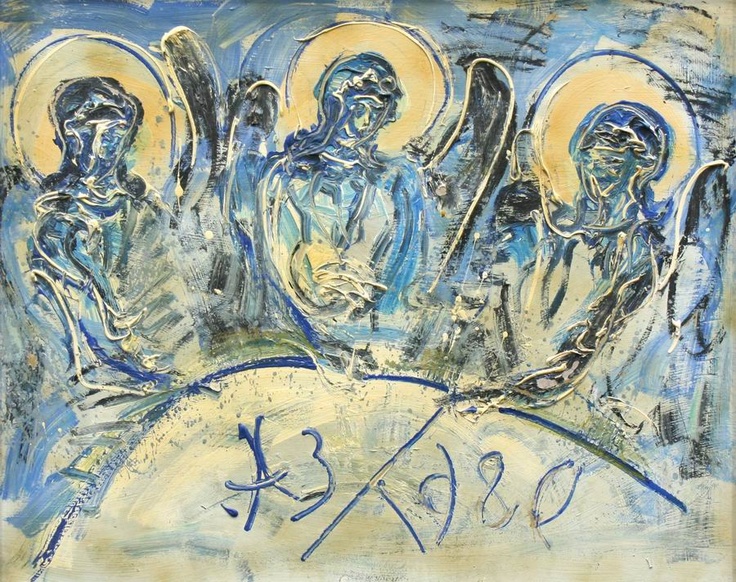Contemporary Orthodox Ecclesiology:
The Nature of the Church and Its Boundaries
The Nature of the Church and Its Boundaries

Anatoly Zverev. Trinity
St Philaret's Institute continues to organise conferences in the Orthodox Ecclesiology series. The 2017 Conference agenda featured issues such as the perception by the church of Archpriest Nicholas Afanasiev’s Eucharistic ecclesiology and contemporary perception of the Eucharist as the centre of a church congregation’s life. The resulting discussion highlighted a whole range of issues associated with the current understanding of the Church and its boundaries. These issues form part of the 2018 Conference agenda.
This discussion is especially relevant since it is difficult to observe and testify to any ecclesial life outside the liturgy and the parish, a life that is based on New Testament principles per se. Indeed, even within the parish, instead of being defined by the law of love, ecclesial life is often driven by administrative and financial considerations and even directly ruled by secular society’s concerns.
However, the Nicene Creed speaks of the Church as a subject of Christian faith, as a living organism, the body of Christ existing not just in the past or the future, but at the present moment in history, something every believer can call any 'outsider' to “come and see”. Therefore, any believer in Christ should know what ‘their assembly’ is and be able to recognise it, in the words of the Saviour, by the love that His disciples have for one another (John 13:35).
Ecclesiology became a key subject of theological research both in the Eastern and the Western Church in the 19th and the 20th centuries. Among the issues raised over this period and viewed in a new light were the universal (‘catholic’) nature of the church, its relationship with the created and uncreated world, the contemporary meaning of the notion of salvation, the marriage of the ‘law of faith’ and the ‘law of prayer’ in the mind of both ancient and modern Christians, the mission of the church in the secular world, etc. However, a wide range of ecclesiological issues still need to be raised and discussed within the context of today’s ecclesiastical thought and practice. Below are some of those issues:
- the openness of the Church and the need for identifying its boundaries;
- the oneness of the church and the co-existence of various ecclesiologies within it;
- the confession of the one, holy, apostolic, and catholic Church and the empirical expression of these characteristics in today’s world;
- the sacrament of the Church and the problem of sacramentalism;
- fellowship in the Church and its canonical, mysterial and mystical dimensions;
- different faith-based approaches to understanding the oneness of the church and the potential for interfaith dialogue, etc.
Needless to say, no contemporary discussion about the mystery and the sacrament of the Church can take place without making some reference to the problem of the language of theology. It is obvious at this stage that the whole of ecclesial experience can no longer be expressed using ontological concepts, while discussing God and the Church in existential terms is also not something that everybody in the Christian world will find acceptable.
The Conference organisers hope that a deep, earnest, and open dialogue between the Conference participants on the above mentioned and associated issues can be truly fruitful and insightful.
Organising Committee:
E-mail: conference@edu.sfi.ru
Tel.: +7 495 623 03 80; +7 968 937 34 64
Chairman:
Dmitry Gasak, Vice-Rector, SFI
